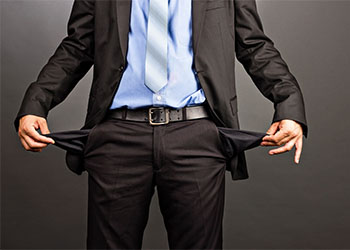In a Bankruptcy Will I Lose My Cars and House?
Oct. 9, 2025
 When we face financial struggles that push us toward bankruptcy, one of the first fears that comes to mind is whether we’ll lose the things that matter most—our home and our vehicles. These are more than just assets; they’re the foundation of our daily lives.
When we face financial struggles that push us toward bankruptcy, one of the first fears that comes to mind is whether we’ll lose the things that matter most—our home and our vehicles. These are more than just assets; they’re the foundation of our daily lives.
Our house provides us with stability, and our cars enable us to work, care for our families, and maintain our independence. So it’s natural to ask: what happens to them during bankruptcy?
At Swindell & Associates, PC, we’ve worked with countless individuals who’ve shared this very concern. Serving Amarillo, Texas, and the Texas Panhandle, our firm helps people make informed choices and understand what bankruptcy really means for their homes, vehicles, and financial future.
While bankruptcy may sound like it automatically means losing everything, that’s not always the case. Laws are designed to balance the rights of creditors with the need for individuals to rebuild, which means protections often exist to help us keep essential property. Let’s take a look at how this process works and what it could mean for our cars and our house.
How Bankruptcy Impacts Property
The type of bankruptcy we file plays a large role in what happens to our assets. While there are several chapters in the bankruptcy code, the most common for individuals are Chapter 7 and Chapter 13. Each one treats property a little differently, so it’s important to understand the distinction before we move forward.
Chapter 7 Bankruptcy and Property Liquidation
Chapter 7 is sometimes called “liquidation bankruptcy.” The court appoints a trustee who may sell non-exempt property to pay creditors. However, many exemptions apply, which often protect essential items like our house or vehicles—depending on equity and state law.
Chapter 13 Bankruptcy and Repayment Plans
Chapter 13, on the other hand, works differently. Instead of selling assets, we enter into a repayment plan over three to five years. If we’re behind on mortgage or car payments, Chapter 13 may help us catch up while keeping the property.
Because each chapter offers different protections, choosing the right one can make the difference between keeping and losing certain assets. With that foundation set, let’s move into how this specifically affects our cars and houses.
What Happens to Our Cars in Bankruptcy
Vehicles are essential for most of us, so it’s common to worry about losing them during bankruptcy. Fortunately, protections often exist to help us keep them.
Factors That Matter When It Comes to Cars
Several elements determine whether our vehicles are at risk in bankruptcy:
Loan status: If our car is financed, the lender holds a lien. This means if we’re behind on payments, the lender may have the right to repossess, regardless of bankruptcy.
Equity in the car: Equity is the difference between the car’s value and what we owe. Bankruptcy exemptions often protect a certain amount of equity.
Exemptions available: Both federal and state laws provide exemptions that can shield our vehicles from liquidation.
It can be important to consider these factors when facing bankruptcy if you’re concerned about your vehicle.
Options for Keeping Our Cars
When it comes to our vehicles, we often have choices in how to move forward:
Reaffirmation agreements: These agreements allow us to keep making payments on our car loan as though bankruptcy never happened.
Redemption: In some cases, we may pay the lender the car’s current market value in a lump sum to keep it.
Surrender: If the loan is too burdensome, we can return the car and wipe out the associated debt.
This flexibility shows that bankruptcy doesn’t always mean losing our car. It instead gives us options based on our needs and circumstances.
What Happens to Our House in Bankruptcy
For most of us, the house is more than just property—it’s home. Losing it can feel overwhelming, but much like cars, protections often exist.
The most important factor in whether we can keep our house is our mortgage status:
Current on payments: If we’re up-to-date and exemptions cover our equity, we can often keep the house.
Behind on payments: Falling behind complicates things, but Chapter 13 may help us catch up.
Too much equity: If the equity in the home exceeds exemptions, the trustee may seek to sell it in Chapter 7.
If you’re facing bankruptcy, considering these factors can help you prepare for the process.
Paths Forward With the House
We generally have several options with our home during bankruptcy:
Keep and continue paying: If exemptions protect our equity, we can continue making mortgage payments.
Catch up under Chapter 13: This plan gives us time to bring payments current while preventing foreclosure.
Surrender the home: If the mortgage is unaffordable, surrendering may wipe out the debt and free us from further obligation.
The key is that bankruptcy doesn’t automatically mean we’ll lose our house—it often depends on our unique financial situation. Evaluating these options carefully helps us choose the path that preserves our stability and peace of mind.
How Exemptions Protect Us
Exemptions are one of the most important concepts when discussing cars and houses in bankruptcy. They’re legal allowances that protect certain property from being sold to pay creditors.
Common Exemptions That Apply to Houses and Cars
While specific rules depend on the state, common exemptions include:
Homestead exemption: Protects a certain amount—or sometimes the full value—of equity in our house.
Motor vehicle exemption: Shields equity in one or more vehicles.
Wildcard exemptions: Some states allow us to apply a general exemption toward any property, including cars or houses.
These exemptions mean that many of us don’t lose our homes or cars during bankruptcy, particularly when equity is limited. Knowing which exemptions apply to us can make a significant difference in protecting the property we rely on most.
A Rundown on Secured Debts
Cars and houses usually involve secured debts, meaning the lender has a legal claim on the property until the loan is paid. This affects what happens in bankruptcy.
If we’re current on payments: We can often keep the property if exemptions cover equity.
If we’re behind: Chapter 13 may allow us to catch up, while Chapter 7 may not stop foreclosure or repossession.
If the property is surrendered: The secured debt tied to the property is generally discharged.
Recognizing the difference between secured and unsecured debts helps us better understand our options. Understanding this distinction also helps us make informed choices about which debts to prioritize during bankruptcy.
Deciding Between Chapter 7 and Chapter 13
Because our home and vehicles matter so much, deciding between Chapter 7 and Chapter 13 is often one of the most important decisions we’ll make in bankruptcy.
Chapter 7 may be better if we have little equity, want a quicker process, and are currently on secured debts.
Chapter 13 may be better if we’re behind on payments or have property we want to protect beyond exemptions.
This decision shapes the outcome for both our cars and our house. It’s important to carefully weigh our options to determine the path that protects our assets.
Experienced Legal Counsel
If we’re worried about losing our cars or house in bankruptcy, we don’t have to face the process alone. Our attorneys at Swindell & Associates, PC help people in Amarillo and the rest of the Texas Panhandle, including Borger, Pampa, Hereford, and Dumas, Texas, work through their options, protect what matters most, and move forward with confidence. Call us today to learn more about our services or to get started with a consultation.
